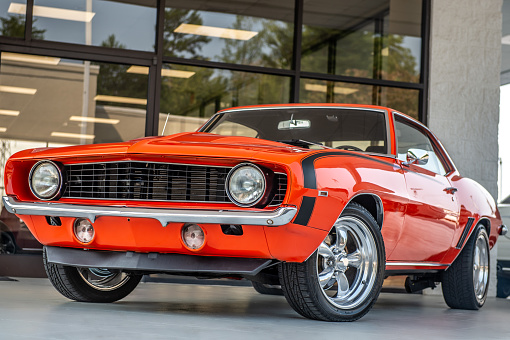
When you buy a new or used car, do you get the feeling that you are at a disadvantage? Well, it’s probably because the dealer is looking out for himself and trying to get the most money for the car he’s selling. You aren’t negotiating with a trusted friend. Keep reading for some helpful tips.
Be sure that you know what type of car you’re looking for and some specifics, such as price, before you leave to go car shopping. You need to know your budget. How many passengers do you need to drive around? What type of fuel economy are you interested in? Two doors or four? Write down the features you want to avoid forgetting any.
Go car shopping online before going to the dealership. Don’t visit a dealership until you have a good idea of what you want in a vehicle, such as size, brand, and pricing. Make sure that you do your homework to get the best possible deal.
You need to know important information about the specific dealer before you give an offer. If you are familiar with their financing choices and trade-in policy in advance, you will negotiate from a stronger position. Also, learn from others, by reading any rip off or scam alerts about that dealership.
Bring in an impartial mechanic before purchasing used. When a dealership refuses, they are usually hiding something. You need a mechanic to give you an objective opinion about the car’s condition and check for damages, submersion in water or other problems some dealers try to hide.
Don’t take it for granted that the sticker price is the lowest you’ll pay. That usually isn’t what the salesmen will expect of you anyway. Bring a friend that is a good negotiator if that is not your strong point. Make sure you research the car you are interested in first, however, so you have some idea of what to offer.
Make plans to spend a lot of time in car dealerships. Don’t rush yourself by planning something later in the day. It is in your best interest to set aside an entire morning or afternoon. If you don’t have a lot of time, think about leaving and coming back later.
Always test drive a car before you buy it. It’s important to test out the car you actually want to buy. You may find something slightly off, or even a hidden defect.
Don’t go car shopping by yourself unless you are certain you have excellent sales resistance. Bring someone else with you for negotiations and to ask questions you may forget to ask. Also, talk to the person you bring about the amount of money you wish to spend.
You don’t have to buy from a dealer. You might be surprised to find that the vehicle you want is readily available from a private owner or small lot. Take advantage of classified ads and websites intended to help you identify sources for the car you want.
Put the Internet to work for you. It is possible to find just about any car you want on the internet. Learn about all the makes and models available. Researching online can tell you everything from features to miles per gallon to resell values.
Car salesmen have quotas to meet. Take advantage of this system by car shopping during the last days of the month. If a salesman has yet to meet their desired quota, they may be extra-eager to close a particular purchase. It will be easier to negotiate toward the end of the month.
Look no further than the Internet when you are looking for a used vehicle. You don’t have to visit a dealership in order to buy a car in modern times. Instead of a dealership, you could visit Craigslist, eBay, or classified ads. You will not have to spend as much and you can avoid dealing with high pressure sales tactics.
Don’t just scribble down your signature, read the fine print. You will have to sign a contract at the dealership, and you should read it carefully. When you have put your signature on a contract, you’re, by law, bound to it. Take as much time as you need when analyzing the contract. You might be able to ask them for a photocopy of the contract.
When shopping for a car, target the end of the month. Salesmen are all about the monthly quota, and your sale might just get them there. Give yourself a few days to negotiate with them before the end of the month and you will likely get an even better deal.
Do some research on incentives before you negotiate. You should be aware of trade-in values, rebates, warranties, bank fees, etc. It will facilitate negotiations if you’re knowledgeable about various offers and come across as an educated consumer.
Speak with an insurance salesperson in order to secure price quotes prior to buying a car. A car with a reasonable price tag might ultimately set you back hundreds in premiums and fees. You need to get a car that has reasonable insurance rates as well as a fair price for the auto itself.
If you find out there is an advertising fee in your car’s price, tell the dealer to remove it. You should not be responsible for that! If the dealer refuses to remove it, walk away. The dealer will almost certainly not let you walk away.
Don’t just accept any deal you are offered. It is probably not the best deal for you. With the right tools and information, you can negotiate the best possible price and terms. Do it correctly by using the strategies from this article.